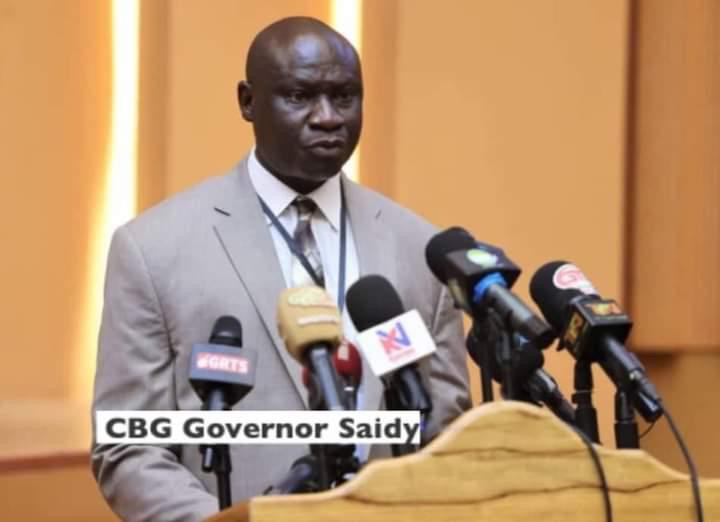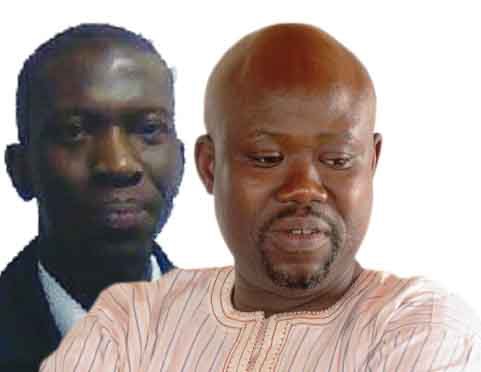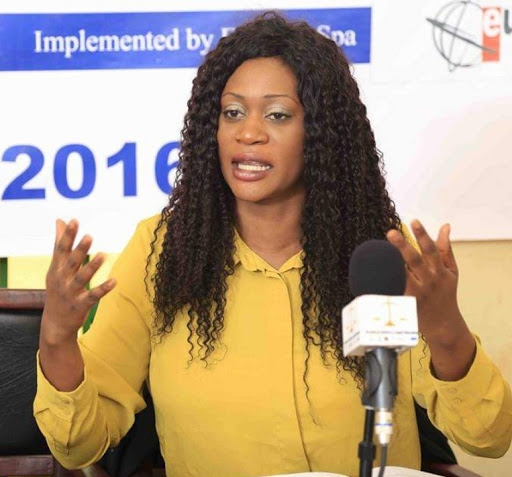By Kemo Kanyi

Buah Saidy, the governor of the Central Bank of The Gambia, has recommended a viable productive sector to enable dalasi to be stable in the foreign exchange market.
In response to questions from members of the press corps on Tuesday, August 27 2024 about the acceptance of CFA into the Gambian markets as a means of exchange in addition to the dalasis, and how that affects the rate of the dalasis in the foreign exchange market, the country’s chief economist highlighted the strong trading partnership between the Gambia and Senegal as one of the main factors to the intrusion of CFA into Gambian markets.
“The factor responsible for the appreciation of CFA against the dalasi is that most of the commodities we use in this country are imported from Senegal. As reflected in our balance of payment, the deficit is high. The explanation is that there are a lot of capital expenditures currently ongoing in the Gambia, especially infrastructure, which requires steel, cement, and basalt. Most of them came through Senegal, and we use CFA to make payments,” the governor specified.
He emphasized that the dalasi is the only legal tender within the country’s borders. “Trading with any other currency in The Gambia aside from the dalasi is illegal, even those charging rentals with the US dollar.”
Additionally, he stated that the Gambia Ports Authority expansion project is another factor that sets the appreciation rate of the CFA against the dalasi as some of the imported Gambian commodities came through the port of Dakar, too. “There, transaction fees are charged in CFA. Senegalese migrants working and living in the Gambia also remit part of their funds back to Senegal in CFA. This makes the demands too high for CFA. The simple economic term states that when the demand is high, the price goes up. This is the challenge on the Gambian dalasi.”
He suggested that if the country wants to reverse this trend, there is a need to increase agricultural productivity and start exporting to earn foreign currency.
“We have cement factories here that are trying to expand the growth which would have limited the importation of cement from Senegal into the country, but unfortunately, we do not have the kinds of rocks to be able to mine. So, we continue to import basalt from Senegal for our infrastructure like roads. The point is we need to develop our agricultural sector not only to satisfy our food needs but also to export part of it,” he recommended.
The Governor added that the dalasi is resilient compared to other sub-regions currently but it’s still pressurised by the country’s volume of imports.
Governor Saidy informed members of the press that the dalasi continues to be relatively stable, depreciating slightly against the major traded currencies in the domestic foreign exchange market.
“From March 2024 to June 2024, the dalasi depreciated against the US dollar by 0.5%, the Euro by 1.2%, the British pound sterling by 1.2%, and the CFA franc by 3.9%,” he disclosed.
The CBG Governor further uncovered the availability of CFA franc reserve that the Central Bank seasonally pumps into the foreign exchange market to stabilize the appreciation of CFA against the dalasi.





